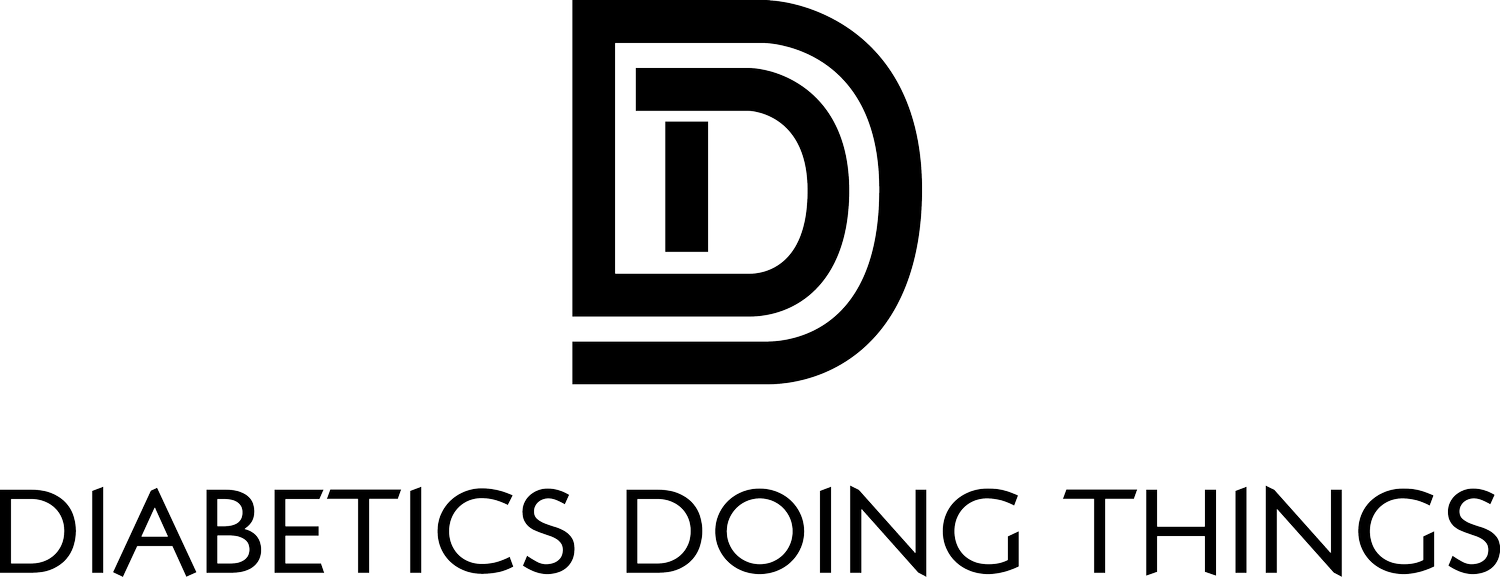Diabetics Doing Things had the pleasure of sitting down with the talented actor and Type 1 diabetic Brec Bassinger at the end of 2022 to talk about her life with diabetes and her journey as an actor on the CW’s Stargirl and other projects.
Brec shared that she was diagnosed with diabetes at the age of 8 and says she feels lucky that her diagnosis came early on in her life, as it has allowed her to adjust and learn how to manage her diabetes over the years.
Brec's diagnosis came as a result of her experiencing common symptoms of diabetes, including extreme thirst, bedwetting, and weight loss. Her mother took her to a care center, where she was diagnosed with diabetes and immediately referred to Cook's Children's hospital for treatment. She spent several days at the hospital, where she received top-notch care and support from the staff.
Despite the challenges of living with diabetes, Brec has never let it slow her down. In fact, she has become an inspiration to many by sharing her journey with diabetes on social media. Through her TikTok and Instagram accounts, she shows others how to stay positive, manage their diabetes, and live their lives to the fullest. We join her on zoom from Vancouver, BC for the interview, which can be heard in its entirety on episode 235 of the Diabetics Doing Things podcast.
DDT: So Brec, you're known for your role as a superhero on the hit show "Stargirl." And not only are you kicking butt on screen, but you're also managing your type one diabetes behind the scenes. Can you tell us a bit about how you navigate the demands of a busy shooting schedule while managing your diabetes?
Brec: Yeah, it can definitely be a challenge. Diabetes on its own has its daily burdens, and working 16, 17 hour days on top of that can be tough. But I always make sure to let the director and first assistant director know about my diabetes so that we can work together to make accommodations if needed. For example, if my blood sugar drops, we need to have juice on standby and I may need to step off for a few minutes to get back on track.
I had a particularly challenging moment recently while filming an emotional scene. We had been working on it for hours and when it came time for my coverage, my blood sugar started to drop and I couldn't remember my lines. I had to speak up and let everyone know that we needed to take a break so that I could get my blood sugar back up. It's all about open communication and being kind to yourself.
DDT: That's so important. And it's great that you're practicing empathy towards yourself. How do you balance taking care of your diabetes while also giving your best performance on set?
Brec: It's definitely a juggling act, but I make sure to always have my devices and supplies on hand and check my blood sugar regularly. I also try to be mindful of my diet and make sure I'm staying hydrated. And if I need to take a break to manage my diabetes, I do so without hesitation. At the end of the day, my health comes first.
DDT: You’ve mentioned that you're open to the idea of playing a character with diabetes on screen. Do you have any ideas of how you would bring diabetes to life in a character?
Yeah, I think it would be really important to have more representation of diabetes in media. And not just for the sake of representation, but also to educate people who may not be familiar with the disease. I know growing up, I didn't really know anyone with diabetes and I didn't really understand what it was. And I think if there were more characters with diabetes in TV shows and movies, it would help people understand it better. There have been a few more recent examples of characters with diabetes in movies and TV shows, but it's definitely just the start. And when we do see it, it's often not portrayed accurately or it's just kind of a token nod to representation, rather than really diving into the reality of living with diabetes.
But at the same time, I also think it's important to not make diabetes the defining characteristic of a character. Like, if a character has diabetes, it doesn't mean that's all they are. They can still be a complex, interesting character with a lot of different facets.
I think part of the issue is just a lack of awareness and understanding about diabetes. A lot of people don't realize that it's not just about not being able to eat sugar or needing to take insulin. There are so many different factors that can affect blood sugar levels, and it can be really hard to manage.
I also think there's still a lot of stigma and misconceptions surrounding diabetes. People might assume that it's something that only affects overweight or unhealthy people, which is obviously not true. And there can be a lot of shame and embarrassment associated with things like checking your blood sugar or injecting insulin in public.
Recently, I've been working on a project that centers around diabetes. It's written, directed, and stars Kelsey Bascom, a type one diabetic. When they approached me to be a producer on the project, I was immediately on board. The movie tells the real little things of diabetes, and I think it's very honest. What's even cooler is that Kelsey has involved many diabetics in the project. In one of the scenes, we were all diabetics, even though only Kelsey played a diabetic character in the movie. We would sit and chat about our experiences with diabetes in between takes, and it was such a lovely set experience. I'm excited for people to see this movie because it covers the unspoken, gross and weird parts of diabetes that people often don't talk about. It's the kind of movie that I wish I had when I was first diagnosed.
So I think it's really important to have more representation in media to help break down those stereotypes and show that diabetes is a complex, nuanced condition that affects people from all walks of life. And I'm really excited to be part of a project that's doing just that.
DDT: I think that's where having someone like you, who has diabetes but is also a superhero, is really powerful.
Once I was asked if having diabetes and being in the spotlight made me feel a responsibility to be an advocate. Honestly, I see it as an opportunity rather than a responsibility. When I was diagnosed at eight years old, my mom brought me a People magazine article with Nick Jonas holding a diet coke and talking about his diabetes. Seeing him do that made me feel like if he can do it, I can do it too. It really impacted me and made me realize the impact of representation. So now, with my own career, I see it as an opportunity to be that representation for someone else. I want to be that Nick Jonas for even one individual.
DDT: Recently I saw a TikTok you made where you talked about using Afrezza (insulin human) Inhalation Powder to manage your diabetes.
This episode is sponsored by Mannkind as part of our ongoing collaboration with Diabetics Doing Things. Please see full Prescribing Information and Medication Guide, including BOXED WARNING on Afrezza.com/safety. AFREZZA (insulin human) Inhalation Powder is a man-made insulin that is breathed in through your lungs (inhaled) and is used to control high blood sugar in adults with diabetes mellitus. AFREZZA must be used with basal insulin in people who have type 1 diabetes mellitus. Please read additional Important Safety Information below.
During my training for Stargirl, I was speaking with a friend who has diabetes and he recommended that I talk to my doctor about Afrezza as a mealtime insulin option. Initially, I only planned to use it for the months leading up to filming, but I found that adding Afrezza as my go-to mealtime insulin, along with maintaining a healthy diet and exercise routine, allowed me to focus on other things. It has been over three years since I started using Afrezza, and I believe that finding the right mix that works for you is key to being your best self.
Important Safety Information
AFREZZA can cause serious side effects, including:
· Sudden lung problems {bronchospasms). In a study, some AFREZZA treated patients with asthma, whose asthma medication was temporarily withheld, experienced sudden lung problems. Do not use AFREZZA if you have long-term (chronic) lung problems such as asthma or chronic obstructive pulmonary disease (COPDJ. Before starting AFREZZA, your healthcare provider will give you a breathing test to check how your lungs are working.
Please see continued Important Safety Information at the end of this article.
DDT: Lightning Round! Let’s ask Brec for her quick responses to these questions:
Current TV Binge:
Love is Blind
Celebrity You Would Challenge in Pickleball:
Dwayne the Rock Johnson
Favorite thing about Alfie (Brec’s dog):
The way he prances instead of walks (laughs)
DDT: What would you tell a young person living with diabetes today that you wish you had been told when you were diagnosed?
That it will get easier. I meet so many diabetics who are still in like their first year of diagnosis and I just tell them that eventually you will know what a low blood sugar feels like. You'll know how to communicate to people when your blood sugars are out of range. Yes, it'll still be a daily burden. It will still be difficult, but you will learn and it will get easier to manage.
DDT: Thanks for your time today, Brec and for all you do for people with diabetes.
Thank you! XO to everyone reading this
Brec's positive attitude and unwavering determination are a true testament to her strength and resilience. She continues to inspire and empower others with diabetes to not let the disease define them and to chase their dreams no matter what challenges they may face.
Brec Bassinger and Rob Howe are paid spokespeople for MannKind Corp. but the thoughts and opinions contained in this interview are their own.
Continued Important Safety Information:
What is the most important information I should know about AFREZZA?
What is AFREZZA?
AFREZZA is a man-made insulin that is breathed-in through your lungs (inhaled) and is used to control high blood sugar in adults with diabetes mellitus.
AFREZZA is not for use to treat diabetic ketoacidosis. AFREZZA must be used with basal insulin in people who have type 1 diabetes mellitus.
It is not known if AFREZZA is safe and effective for use in people who smoke. AFREZZA is not for use in people who smoke or have recently stopped smoking (less than 6 months).
It is not known if AFREZZA is safe and effective in children under 18 years of age.
Who should not use AFREZZA?
Do not use AFREZZA if you:
Have chronic lung problems such as asthma or COPD.
Are allergic to regular human insulin or any of the ingredients in AFREZZA.
Are having an episode of low blood sugar (hypoglycemia).
What should I tell my healthcare provider before using AFREZZA?
Before using AFREZZA, tell your healthcare provider about all your medical conditions, including if you:
Have lung problems such as asthma or COPD
Have or have had lung cancer
Are using any inhaled medications
Smoke or have recently stopped smoking
Have kidney or liver problems
Are pregnant, planning to become pregnant, or are breastfeeding. AFREZZA may harm your unborn or breastfeeding baby.
Tell your healthcare provider about all the medicines you take, including prescription and over-the-counter medicines, vitamins or herbal supplements.
Before you start using AFREZZA, talk to your healthcare provider about low blood sugar and how to manage it.
What should I avoid while using AFREZZA?
While using AFREZZA do not:
• Drive or operate heavy machinery, until you know how AFREZZA affects you
• Drink alcohol or use over-the-counter medicines that contain alcohol
• Smoke
What are the possible side effects of AFREZZA?
AFREZZA may cause serious side effects that can lead to death, including:
See “What is the most important information I should know about AFREZZA?”
Low blood sugar (hypoglycemia). Signs and symptoms that may indicate low blood sugar include:
• Dizziness or light-headedness, sweating, confusion, headache, blurred vision, slurred speech, shakiness, fast heartbeat, anxiety, irritability or mood change, hunger.
Decreased lung function. Your healthcare provider should check how your lungs are working before you start using AFREZZA, 6 months after you start using it, and yearly after that.
Lung cancer. In studies of AFREZZA in people with diabetes, lung cancer occurred in a few more people who were taking AFREZZA than in people who were taking other diabetes medications. There were too few cases to know if lung cancer was related to AFREZZA. If you have lung cancer, you and your healthcare provider should decide if you should use AFREZZA.
Diabetic ketoacidosis. Talk to your healthcare provider if you have an illness. Your AFREZZA dose or how often you check your blood sugar may need to be changed.
Severe allergic reaction (whole body reaction). Get medical help right away if you have any of these signs or symptoms of a severe allergic reaction:
• A rash over your whole body, trouble breathing, a fast heartbeat, or sweating.
Low potassium in your blood (hypokalemia).
Heart failure. Taking certain diabetes pills called thiazolidinediones or “TZDs” with AFREZZA may cause heart failure in some people. This can happen even if you have never had heart failure or heart problems before. If you already have heart failure it may get worse while you take TZDs with AFREZZA. Your healthcare provider should monitor you closely while you are taking TZDs with AFREZZA. Tell your healthcare provider if you have any new or worse symptoms of heart failure including:
• Shortness of breath, swelling of your ankles or feet, sudden weight gain.
Treatment with TZDs and AFREZZA may need to be changed or stopped by your healthcare provider if you have new or worse heart failure.
Get emergency medical help if you have:
• Trouble breathing, shortness of breath, fast heartbeat, swelling of your face, tongue, or throat, sweating, extreme drowsiness, dizziness, confusion.
The most common side effects of AFREZZA include:
• Low blood sugar (hypoglycemia), cough, sore throat.
These are not all the possible side effects of AFREZZA. Call your doctor for medical advice about side effects.
You are encouraged to report negative side effects of prescription drugs to the FDA. Visit www.fda.gov/medwatch, or call 1-800-FDA-1088 (1-800-332-1088).
Please See Full Prescribing Information, including BOXED WARNING, Medication Guide and Instructions for Use at Afrezza.com/safety.





